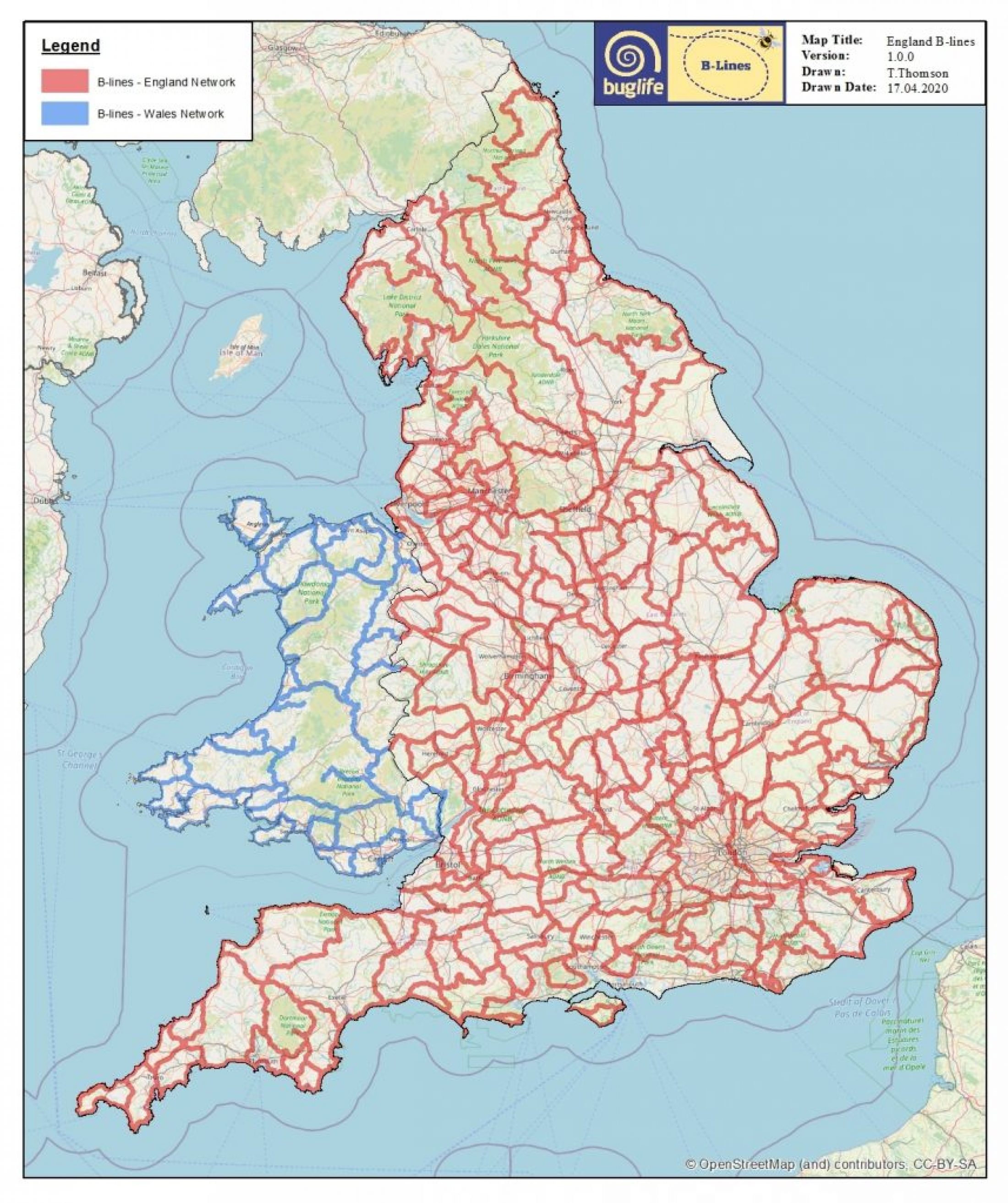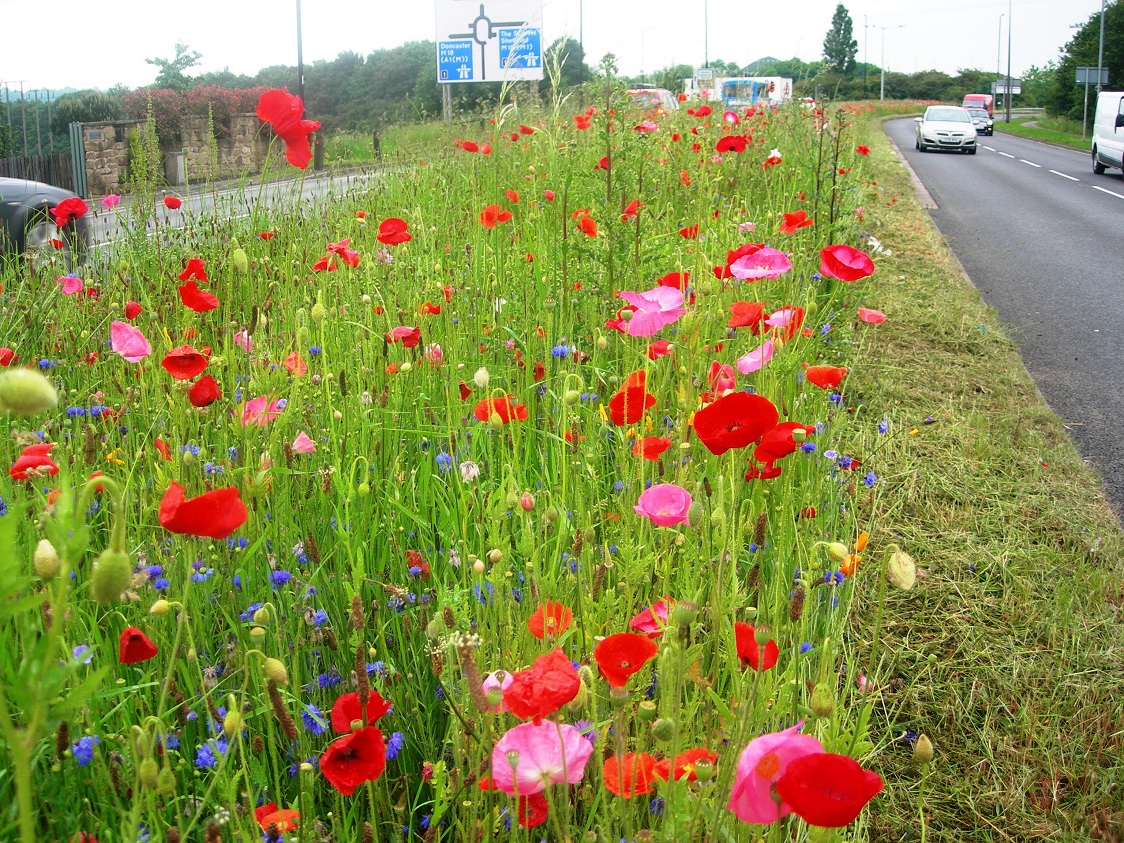
- Sustainable Planet -
- 3mins -
- 385 views
Wildflower corridor scheme launched in bid to boost insect numbers in England
The ‘B-Lines’ initiative will create a network of wildflower highways across the UK to help bees and other pollinators suffering from habitat loss.
b-lines initiative launches to create corridors for wildlife to move around the country
B-Lines are an imaginative and beautiful solution to the problem of the loss of flowers and pollinators. The B-Lines are a series of ‘insect pathways’ running through the UK’s countryside and towns, along which BugLife—the only organisation in Europe devoted to the conservation of all invertebrates—are restoring and creating a series of wildflower-rich habitat stepping stones. They link existing wildlife areas together, creating a network, like a railway, that will weave across the British landscape. This will provide large areas of brand new habitat benefiting bees and butterflies– but also a host of other wildlife.

B-Lines initiative to create network of wildflower highways across UK to help insects
You could be forgiven for mistaking the red (and blue) lines that crisscross the map of England and Wales for main roads – and in a way they are. But instead of cars and trucks, these wildflower highways will carry bees and other pollinators as part of an initiative to halt the decline of insects.
Dubbed B-Lines, the online map joins the dots between existing wildflower habitats in England and identifies suitable routes between them that could be turned into wildflower corridors for pollinators.
The map was launched by the conservation charity Buglife, which is calling on farmers, businesses, public bodies and individuals to plant wildflowers along its B-Lines network in a bid to restore habitats that pollinators depend on.
England has lost an estimated 97% of its wildflower meadows since the second world war. This rampant habitat loss has had a catastrophic effect on butterflies, hoverflies and bees, with numbers of some species estimated to have fallen by 80 per cent in recent years.
“A complete England B-Lines network is a real landmark step in our mission to reverse insect declines and lend a helping hand to our struggling pollinators,” Catherine Jones, pollinator officer at Buglife told Positive.News. “We hope that organisations and people across England will help with our shared endeavour to create thousands of hectares of new pollinator-friendly wildflower habitats along the B-Lines.”
Through regional projects such as the West of England B-Lines project, Landscapes for Wild Pollinators, South Wales B-Lines, Get Cumbria Buzzing and John Muir Pollinator Way, BugLife have explored new creative ways of working with different partners to deliver the B-Lines habitat creation and restoration on the ground.
BugLife have worked with water companies, schools, businesses, farmers, highways managers and local authorities. To date, their regional B-Lines partnership projects have delivered over 450 hectares of wildflower-rich habitat for pollinating insects across England, Scotland and Wales – that’s the equivalent of 450 football pitches!
The initiative will not, however, be a cure-all for addressing the worrying decline of bees and other insects, which continue to be impacted by habitat loss, as well as the widespread use of pesticides and, increasingly, climate change.
B-Lines mapping is now complete for Wales, Northern Ireland, and England; the Scotland map will also be completed by the end of the year.
Source: Positive.News


